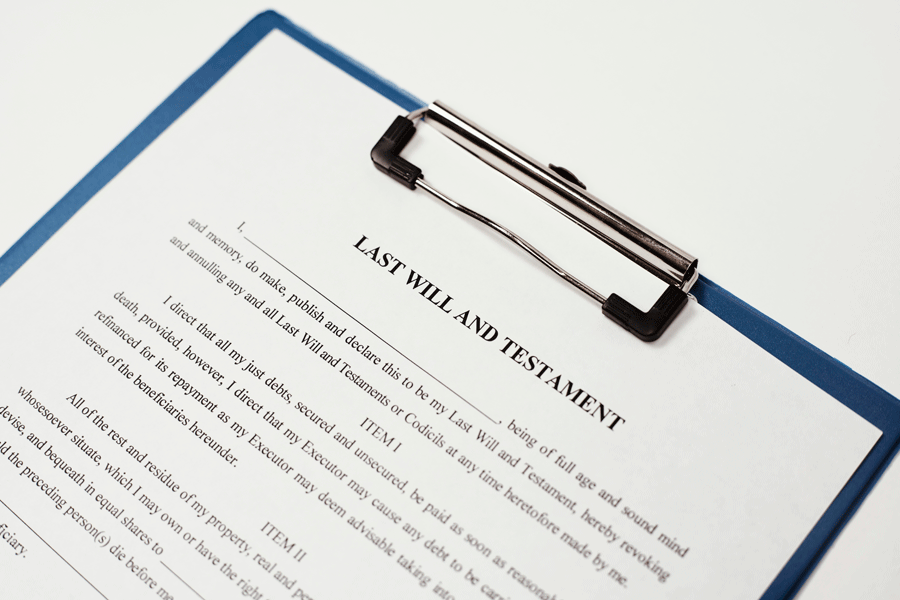Many people feel slightly uncomfortable with the thought of writing a last will and testament. Death can be a touchy subject, but it’s something that everyone has to deal with at some point. Writing a legal last will and testament will ensure that your property is dispersed based on your specific wishes.
It can also prevent any disagreements between family members which can lead to hard feelings in an already stressful time. Use the following tips and information to write your last will and testament so you can feel confident that your wishes will be carried out in the exact way you want.
What is a Last Will and Testament?
Your last will and testament is an official legal document that lets your family and friends know how you wish your estate to be dispersed upon your death. The document defines what should be done with assets and can also be used to provide information about care for any dependents you may have. Without a last will and testament, the state will have complete control. They decide how to distribute assets without any consideration of familial obligations. The state will also completely ignore and invalidate a will that hasn’t been done legally, which is why it’s so important to consult an attorney before finalizing your last will and testament.
Note: When you’re writing a will, it’s always best to consult a lawyer who specializes in estate planning. Some ways allow you to complete a will on your own, but if you don’t follow the steps exactly, it can make the document invalid. An attorney can help you make sure that everything is in order.
Who Needs a Last Will and Testament?
Some people are under the misconception that a last will and testament is only for people with a lot of assets. But this simply isn’t true. These official documents deal with more than distributable assets. They are beneficial for anyone who wants to prevent disagreements or confusion from loved ones after death. Plus, a last will and testament also designate what will happen to any dependents, a necessity for any parent of a minor child. Realistically, everyone should have a last will and testament prepared legally. The process is not complicated or expensive, and it can reassure you that things will be done as you wish.
Will vs Living Trust
Estate planning can involve various types of documents. These documents can be better explained through legal counsel but the basics are quite simple to understand. A will is a very basic document that simply provides information on what should happen to your property after you die. A living trust takes it a bit further by allowing you to appoint a trustee to manage your estate after your death. Wills are cheaper to write up and have legalized, but they can cost more in the long run. With a living trust, you will pay out more upfront to have the documents legalized but it can save money and frustration for your family members after your death.
Dispersing your Assets and Dealing with Dependents
It’s important to understand that the assets of your estate will first be used to pay any outstanding debts. If there are debts or payments due, it’s helpful to pay those ahead of time if possible. This can make it easier to decide what to do with assets that are left after debts are paid. It’s completely up to each individual how you want assets to be dispersed. They can go to family members, friends, charities, or other organizations. A last will and testament is beneficial for adults of any age, especially those with dependents.
Note: If you don’t have a legal document that describes specifically who will care for your dependents in the event of your death, that decision will be left to the court to decide.
You can even include information on where your pets should go after your death. Just be sure to consult an attorney to ensure that everything is written up the correct way. Legal documentation can be complicated and the care of dependents after your death is a very important consideration.
Last Will and Testament Forms and Templates (Word | PDF)
Which State Governs my Will?
Most wills declare your state of permanent residency. This is important because it will determine the state that governs your will. In almost all cases, your state of permanent residency is the state with legal standing over your will. An attorney in your state can help you create a will that follows all the regulations required for legality. It can become somewhat complicated when you own property in other states, but these issues can be dealt with by planning ahead and having everything written up legally in your will.
Most states require that you have 2 or more witnesses attest and sign your last Will. Find your state from the given list and be sure that you know the requirements.
A last will and testament can give you peace of mind that your family and friends won’t deal with questions or controversy upon your death. Having legal documents in place means that your wishes will be carried out exactly as you want. While there are ways to write these documents on your own, it’s helpful to have legal counsel so you know that everything is done in a way that can’t be disputed.
Looking For Document Management System?
Call Pursho @ 0731-6725516
Check PURSHO WRYTES Automatic Content Generator
https://wrytes.purshology.com/home
Telegram Group One Must Follow :
For Startups: https://t.me/daily_business_reads




